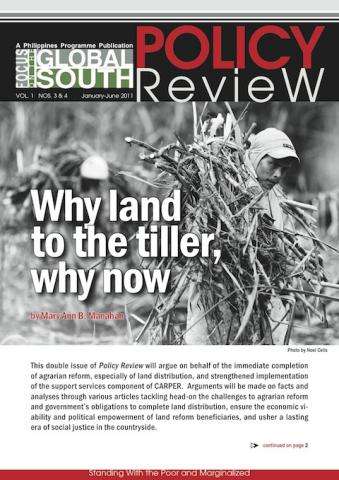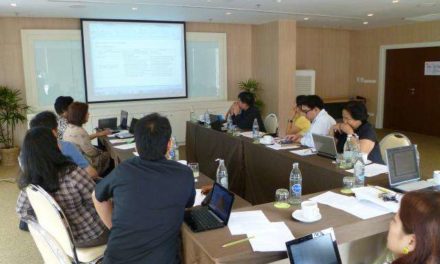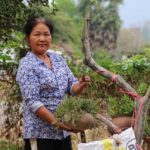The “biggest challenge” to finally accomplishing agrarian reform, more than 20 years after the Philippine Constitution articulated that it shall be the main means to realize social justice in the countryside, is “distributing 1.5 million hectares…to 1.1 million beneficiaries” with barely three years left to the current administration to implement CARPER. This is the central message of the study recently released by the non-government, international think tank Focus on the Global South. Through a roundtable discussion, the study was presented to key government officials and civil society advocates of agrarian reform, September 9, 2011.
The central message of the study, which came out in the newest edition of Focus’ Policy Review on the Comprehensive Agrarian Reform Program Extension with Reforms or CARPER, is that the P-Noy government has no choice but to be the administration that shepherds agrarian reform to its completion, especially the land acquisition and distribution (LAD) provision which deadlines June 2014. It was under the government of former President Corazon Aquino, President NoyNoy’s mother, when the Comprehensive Agrarian Reform Program law or CARP was passed.
To meet this challenge, the Focus study said, this administration needs to “hurdle landlords, inefficient system and a deficient budget.” As the deadline for the implementation of the LAD component of the law nears the remaining lands that are up for redistribution are private agricultural lands above 24 hectares “and where relations between the tenants and landlords continue to be highly feudal and exploitative.” The Focus study characterized these landowners as those “who have successfully evaded land distribution for the last 23 years. These were the same landowners who had aggressively and relentlessly opposed CARP.” The study cited as examples of these controversial cases the non-distribution of the landholdings of “the Arroyo and Cojuangco sugar-lands in Negros Occidental and the Reyes’ coconut lands in the Bondoc Peninsula, and the exclusion of commercial landholdings in Mindanao of the Floreindos.” The study’s main authors are Mary Ann Manahan and Carmina Flores-Obanil of Focus on the Global South.
“The top 15 provinces with the biggest number of undistributed lands from 1997 to the present…also figure prominently in the list of provinces where poorest families have been found,” said Manahan and Obanil.
The study also stressed the situation of the rural women and critiqued the slow implementation of CARPER’s gender provisions. “Despite provisions that will ensure substantive equality between men and women as qualified beneficiaries…as of 2009 only 537,320 women agrarian reform beneficiaries have received Certificates of Land Ownership Awards (CLOAs) as compared to the 1,130,737 male beneficiaries,” the study said.
Director Rodolfo Bueno of the Department of Agrarian Reform (DAR) said during the roundtable that the main obstacle to CARPER “comes from outside the department.” He affirmed the finding of Focus’ study that the main hindrance remains to be the resistance of landlords especially in areas where land ownerships are highly contested. “Within DAR, there is also inherent weakness, because despite the persistence of many within the bureaucracy, there are failures that affect overall implementation. There is also weakness in the law—specifically the killer amendments, such as the attestation of landlords,” Bueno added. He also called on the executive to approve the budget submitted by the department to enable it to deliver the yearly targets. DAR’s proposed budget for 2012 is P18billion, a billion pesos higher than 2011’s. In the 2011 budget, P4 billion was slashed and redirected to the Conditional Cash Transfer or CCT program.
The director also mentioned the measures now being undertaken by the department, in particular improvement of the database to avoid confusing, varying targets. He also said that the department’s priority is the conduct of field visits in “the top 20 provinces which have the highest backlog and where the obstacles are found.”
The environment department for its part is now “conducting land surveys and measuring the size of disposable lands for distribution,” explained Asst. Dir. Ralph Pablo of the Land Management Bureau of the Department of Environment and Natural Resources (DENR). The DENR is making the commitment to catch up with its 10 percent backlog in distribution of the alienable and disposable lands, said Pablo in response to the Focus study. “The Cadastral survey has to be completed, and this is the promise of the government, because this will certainly help in accomplishing CARPER,” Pablo said.
“Looking at the statistics, it might be hard to fully implement CARPER, considering the limited time frame” said Elizabeth Lacson-Paguio, focal person of the farmers’ sector in the National Anti-Poverty Commission. Paguio said that based on a mapping she made of areas where there is backlog and concomitantly poverty is high, there is no strong organization of farmers. Organized farmers and agrarian reform advocates should really push for the completion of CARPER during its critical period, Paguio stressed.
Danny Caranza of the agrarian reform advocate Katarungan/Rights-Net said that the current government’s accomplishment vs. target performance is not only low, but “really, really low.” DAR should have “mobilized the positive forces of society, such as the non-government organizations and people’s organizations, especially in the face of resistance from landowners,” Caranza stressed. “We are DAR’s allies, and the department should have harnessed the willingness of these forces to help push for agrarian reform, but despite our efforts to engage the department, it did not tap our support,” Caranza said. Caranza is not hopeful that the government will meet its targets for the next three years, as he believes the president himself is not keen on agrarian reform. Focus’ Policy Review also cited this lack of commitment of the president as seen in the way he has so far responded to the issue of Hacienda Luisita, where his decisive action is still being sought.
Rita Macabulos of the House of Representatives Committee on Agrarian Reform called on the agrarian reform advocates to actively engage the legislators and “remind them of the promise of CARPER.”
For DAR Undersecretary Anthony Parungao, the answer to the question “Can Government Implement CARPER” is in the affirmative. There is no other option for DAR but to accomplish what the law says, Parungao said. # Clarissa V. Militante – Focus on the Global South









